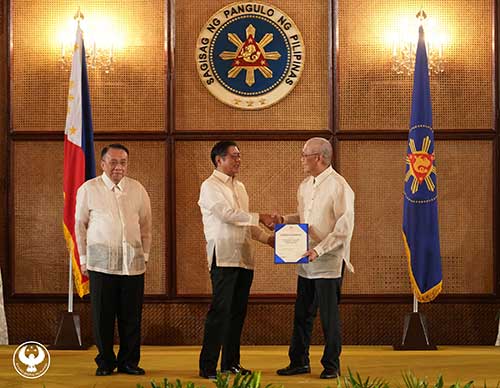
The Philippines’ exit from the Financial Action Task Force grey list in February is expected to bring wide-ranging benefits to Filipinos, including stronger businesses, lower remittance costs, and increased foreign investment.
Officials emphasized these gains during a recognition ceremony honoring contributors to the achievement.
“Through concerted reforms, government agencies fortified the integrity of our financial system and reaffirmed our nation’s commitment to combating financial crimes,” said Bangko Sentral ng Pilipinas Governor and Anti-Money Laundering Council Chairman Eli M. Remolona Jr.
“For us Filipinos, exiting the grey list means a simpler, more affordable financial system,” said President Ferdinand R. Marcos Jr., who led the event in Malacañang Palace on Monday.
“It means our OFWs can send money home at a lower cost, and our businesses face fewer hurdles in securing international financing,” he added.
Executive Secretary Lucas P. Bersamin, chairman of the National Anti-Money Laundering/Counter-Terrorism/Counter-Proliferation Financing Coordinating Committee, said the country now has a comprehensive framework to address money laundering and terrorism financing.
He credited the joint effort of public and private agencies for the successful removal from the FATF grey list.
The Philippines’ delisting is expected to improve cross-border transactions by lowering compliance costs, enhancing transparency, and simplifying regulatory processes.
It may also encourage international banks to initiate or resume partnerships with local financial institutions, expanding access to global financial services.
President Marcos also commended AMLC and the NACC for spearheading the country’s reform efforts.
The Philippines was placed on the grey list in 2021 and was removed in February 2025 after addressing action items required to strengthen anti-money laundering, counter-terrorism, and proliferation financing frameworks.





















